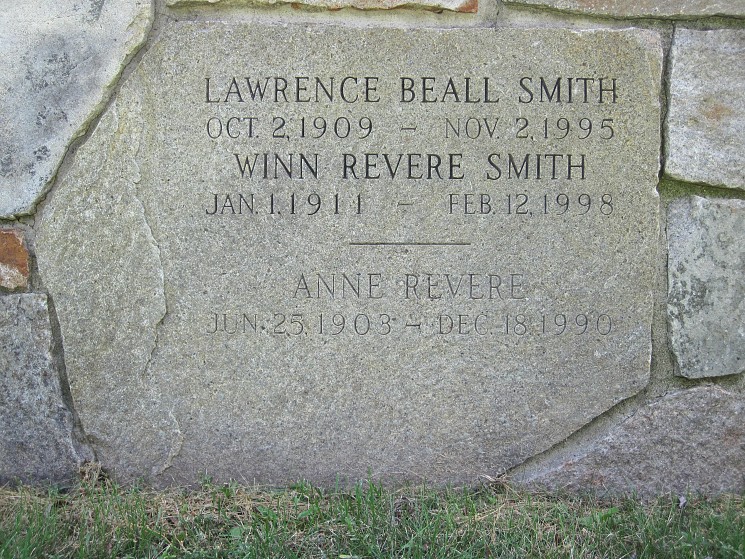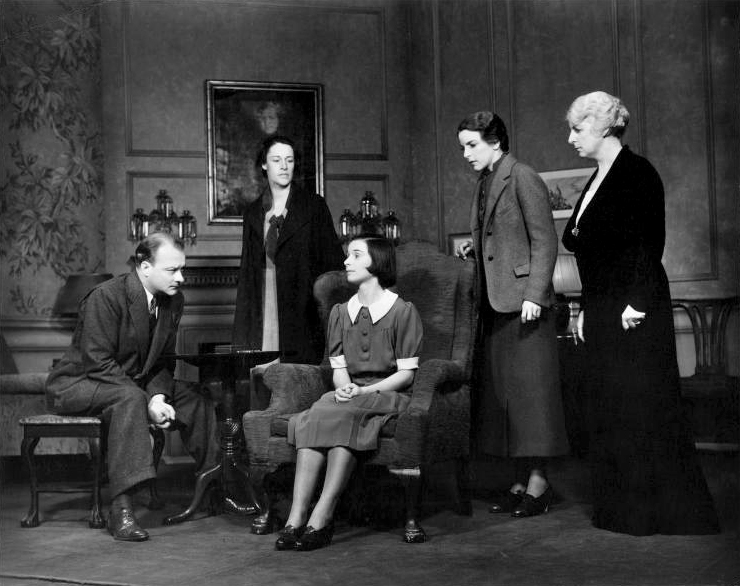
Anne Revere (1903-1990)
Actor & Oscar-Winner
Best known for her Oscar winning role in the film National Velvet, Anne Revere was born on June 25, 1903. Born in New York, New York, Anne Revere was a remote relative of the famous silversmith and Revolutionary hero Paul Revere. She received her college education at Wellesley College and was determined to be an actress. She continued her training for the stage at the American Laboratory Theater. She briefly worked in stock productions and made her first appearance on Broadway in 1931. In 1934 she performed in the film version of one of the plays in which she had appeared on Broadway, Double Door.
She moved to Hollywood in 1940 and achieved a short but noteworthy career as a character actress, performing in 31 films in the 1940s. She often played the role of the supportive and morally sound mother. In 1943 she portrayed the devoted mother of Bernadette (played by Jennifer Jones) in The Song of Bernadette, the tale of the French peasant girl who saw a vision of the Virgin Mother in the grotto of Lourdes thus changing the town forever. Revere was nominated for an Oscar as Best Supporting Actress. In 1944 Revere was cast as the mother of twelve-year-old Elizabeth Taylor in National Velvet. This film became a classic and launched Taylor’s long career. Revere was nominated and won the Oscar for Best Supporting Actress for her role as Mrs. Brown in the film.
In 1947 Revere portrayed yet another mother, the ailing supportive parent of Gregory Peck’s character in Gentleman’s Agreement. In this movie Peck played a young writer researching antisemitism by pretending to be Jewish. The film garnered eight Academy Award nominations with Revere nominated for Best Supporting Actress. She lost to her co-star in the same film, Celeste Holm, who played Peck’s coworker and romantic interest.
Some of Revere’s other film credits include roles in The Howards of Virginia (1940), Men of Boys Town (1941), The Flame of New Orleans (1941), The Falcon Takes Over (1942), Keys of the Kingdom (1944), The Thin Man Goes Home (1944), Dragonwyck (1946), and Forever Amber (1947). She played another upright mother in Body and Soul (1947), Robert Rossen’s film that some characterized as a moral indictment of the American dream.
In 1947 the House Un-American Activities Committee arrived in Hollywood, seeking to remove all traces of Communism and left-wing ideas from the film industry. Some in the Hollywood community cooperated and gave the names of those suspected of Communist sympathies. Others refused to participate in the blacklisting process. When Revere was called to testify in 1951, she refused and was blacklisted. Revere was reported to have said, “I’m a free thinking Yankee rebel and nobody’s going to tell me what to do!”
Revere served as treasurer of the Screen Actors Guild and in 1953 she wrote a scathing letter to her fellow SAG Board members regarding their actions during this period of history. Revere’s letter was read at Hollywood Remembers the Blacklist, an event held on October 27, 1997, commemorating the 50th anniversary of the start of the House of Representatives Un-American Activities Committee hearings. As a result of the blacklist, several hundred screen artists were denied work in their profession for over a decade. Research indicates that over 500 people from the entertainment industry were listed, including Humphrey Bogart, Lillian Hellman, Lee Grant, Zero Mostel, Jean Muir and folksinger Pete Seeger.
Revere’s last role before her long absence from film-making due to the blacklisting was as Montgomery Clift’s mother in A Place in the Sun (1951). Even this role was cut due to her name being on the list. Revere’s screen career ended. But she returned to the stage in 1960, winning a Tony award for her performance in Lillian Hellman’s Toys in the Attic. In 1962 she began acting in television productions. She appeared in the made-for-television movie Two for the Money (1971) as Mrs. Gap. Finally in 1970 after 19 years away from the screen she appeared in Tell Me That You Love Me, Junie Moon. Her final film appearance was in Birch Interval (1977).

Anne Revere is buried at Mount Auburn in Lot 11002 near the Azalea Garden Wall. Her name is inscribed on the granite stone wall that embellishes the landscape of the area.
Footnotes:
Adapted from the research of Janet Heywood and Laura M. Gosman, as published in Mount Auburn’s Person of the Week: Anne Revere, 2003.

